


MGMU Leonardo da Vinci Textile Design Postgraduate (PG) program offers development of studnets artistic vision, refine design skills, and become a confident and competent textile designer ready to make a mark in the ever-evolving world of textiles.
Missing Details
Year-wise Program Structure of Postgraduate Program
|
Year 1 |
Professional Core(PC) |
Skill Enhancement Course (SEC) |
Indian Knowledge System (IKS) |
Ability Enhancement Course (AEC) |
||
|
Year 2 |
Professional Core (PC) |
Professional Elective(PE) |
Research Project (RP) |
Graduation Project (GP) Design / Art Collection |
Industry Internship (OJT) |
|
| SR.NO | NAME | Organization |
|---|---|---|
| 1 | Dr. Monika Aggarwal | Chairperson,Dean Faculty of Design, MGM University, Chhatrapati Sambhaji Nagar, Email id: [email protected]. |
| 2 | Dr. Vijaya Deshmukh | Professor, Dean, Faculty of Management |
| 3 | Ms. Anjali Khot | Associate Professor, Institute of fashion Design |
| 4 | Ms Kavita Rajput | Assistant Professor, Institute of Fashion Design MGM University |
| 5 | Mr. Ambrish Gaur | Expert in Industry, Assistant professor: School of Design (Dept. of Fashion Design) MIT-World Peace University, paud Road' Pune Maharashtra. |
| 6 | Mr.Suresh Karale | Expert in Academics, Head of Department Design PG Programme School of Fashion Technology, Pune. |
| 7 | Ms. Anjali Karolia | Professer, Deparment of Clothing and Textiles Faculty of family and community science The Maharaja Sayajirao University of Baoroda Vadodara-390002 |
The M.Des in Interior Design program at Leonardo da Vinci School of Design is an advanced, multidisciplinary course that empowers students to become innovative, knowledgeable, and skilled interior designers. This program explores the art and science of creating functional, aesthetically pleasing, and sustainable interior spaces. Students will engage in comprehensive coursework, design projects, and research to prepare for leadership roles in the field of interior design.
Textile Designer: As a textile designer, you can work with textile manufacturers, fashion houses, or as a freelance designer. Your role will involve creating patterns, prints, and textures for fabrics used in clothing, home furnishings, and other products.
Fashion Designer: With a strong background in textile design, you can become a fashion designer specializing in creating unique textiles for your fashion collections. You'll be responsible for designing clothing and accessories that incorporate your textile designs.
Interior Textile Designer: Interior textile designers create fabrics for use in interior design, including upholstery, curtains, bedding, and more. You can work with interior design firms, textile manufacturers, or as an independent consultant.
Color Consultant: Color plays a significant role in textile design. Color consultants advise on color palettes and trends for textile and fashion companies. You may also work with interior designers and paint companies.
Textile Production Manager: In this role, you oversee the production process of textiles, ensuring quality, efficiency, and timely delivery. You'll work closely with production teams to implement textile designs.
Textile Researcher: If you have a strong interest in the technical aspects of textiles, you can work as a researcher. Textile researchers develop new materials, production techniques, and sustainable solutions for the textile industry.
Textile Technician: Textile technicians work on the practical aspects of textile production. They may operate machinery, test materials for quality, and troubleshoot production issues.
Textile Marketing and Sales: This role involves promoting textile products to manufacturers, retailers, and consumers. You may work in marketing, sales, or as a product developer for textile companies.
Fashion Stylist: As a fashion stylist, you can use your knowledge of textiles to create visually appealing outfits and looks for photoshoots, fashion shows, or individual clients.
Academic or Industry Educator: If you're passionate about sharing your knowledge, you can become a lecturer or educator in a university or college, teaching textile design to aspiring designers. You can also conduct workshops and training programs for industry professionals.
Freelance Textile Designer: Many textile designers choose to work independently as freelancers. This allows you to take on a variety of projects, work with multiple clients, and have creative freedom in your work.
Sustainable Textile Specialist: With the growing emphasis on sustainability in the textile industry, there is a demand for specialists who can work on creating environmentally friendly textiles, processes, and products.
Textile Curator or Archivist:Museums and cultural institutions may hire textile curators or archivists to manage and preserve textile collections, curate exhibitions, and conduct research on historical textiles.
Textile Entrepreneur:If you have a unique textile design idea or concept, you can start your own textile design business. This could involve creating your own brand, designing textiles, and selling them through various channels. Your career path will depend on your interests, skills, and the specialization you choose during your Master's program. Textile design offers a diverse range of opportunities, from creative design roles to technical and managerial positions within the textile and fashion industries.
Missing Details
Missing Details
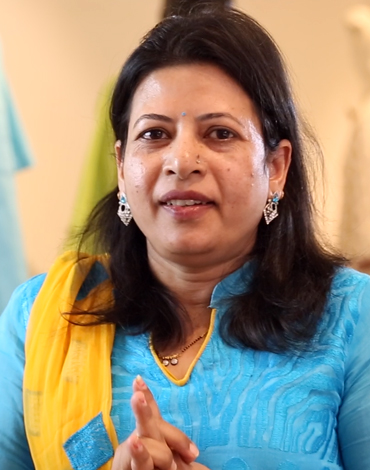
Ms. Anjali Khot
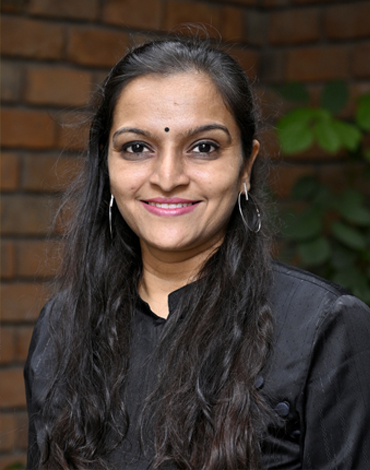
Ms. Kavita Rajput
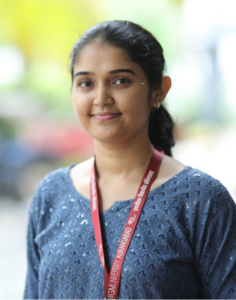
Ms. Shivani Khedkar

Dr. Adya Tiwari
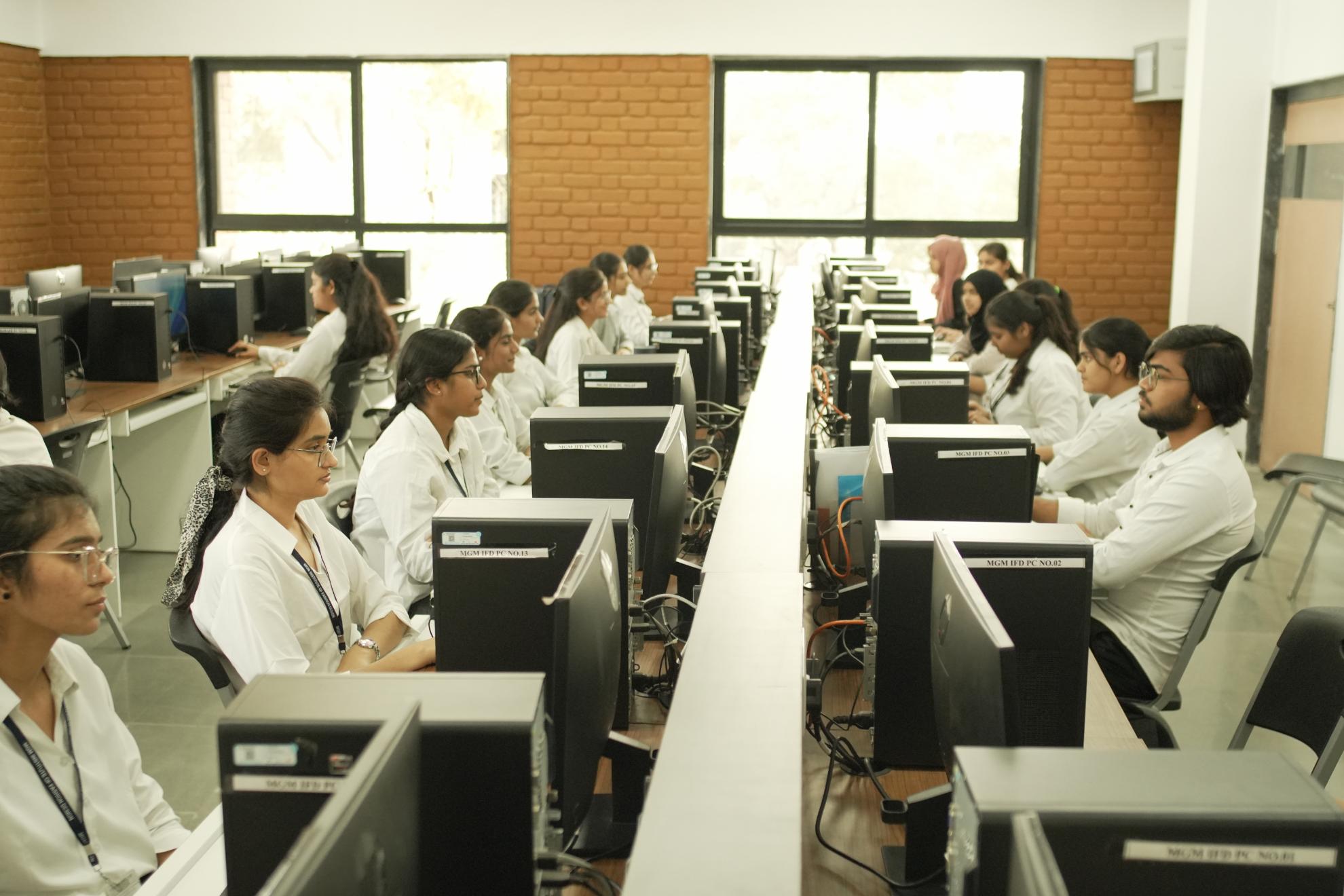
The Computer lab caters the class of 40 students. List of Design Software accessible to the students:-
Adobe Illustrator, Photoshop, InDesign, CorelDRAW AutoCAD
(All the computers have 24X7 internet access.)

IFD Total books. 601 volume Total magazine 06 Volume 189
Total journal 03 Volume 30
COFA Total books volume 852 Total magazine 4
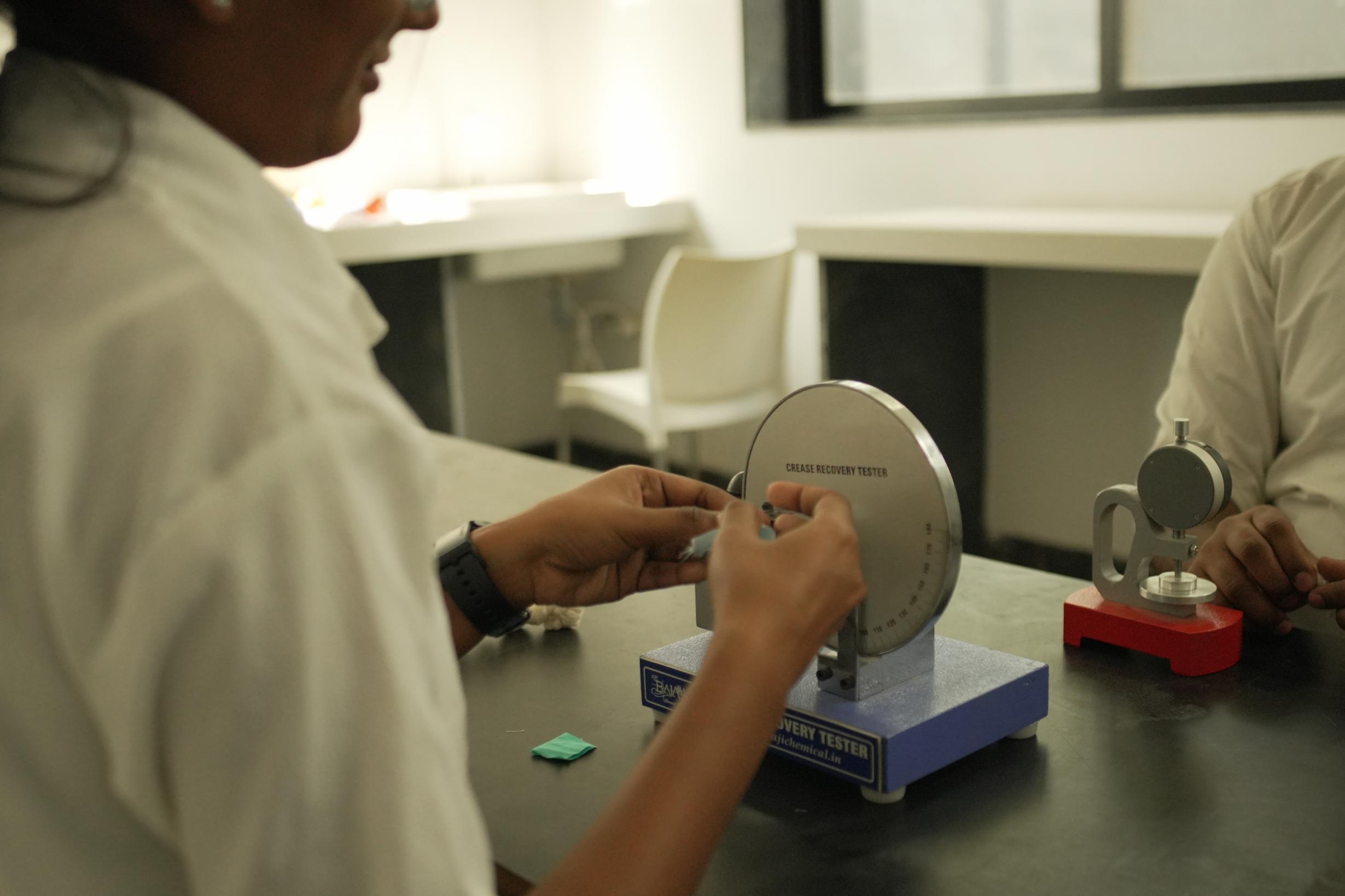
List of equipment’s accessible to the students: -Fibre testing equipment - Microscope
Yarn Testing Equipment - Beesly Balance Twist Tester Wrap Reel Motorized Crease Recovery tester GSM Round Cutter Fabric thickness tester Tearing strength tester
Washable platform for Chemical Testing with a sink at the corner For Mechanical Testing wooden platforms or tables with storage and a centre table for cutting of specimen and demonstration
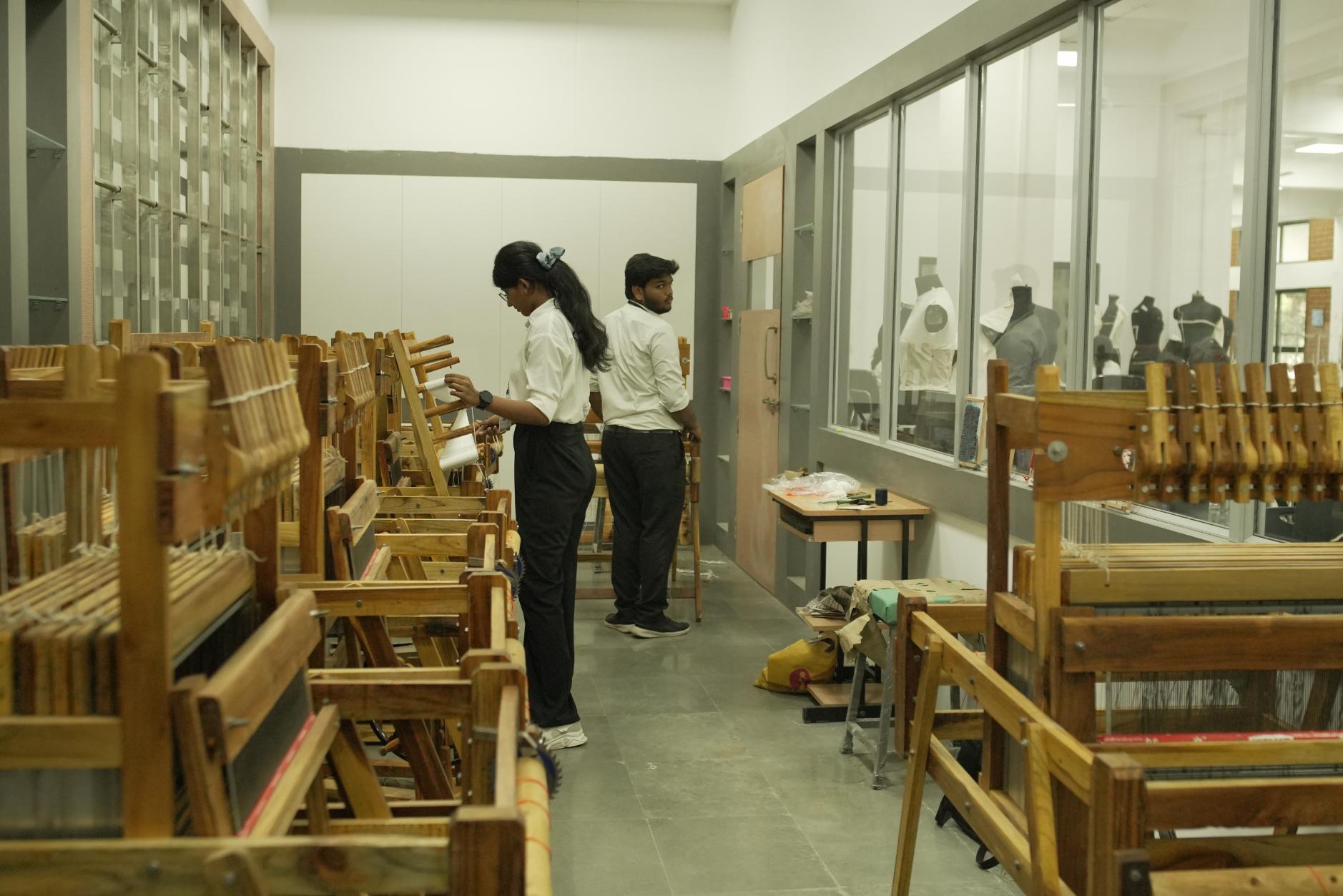
Equipped with table looms so that students can create weave patterns.
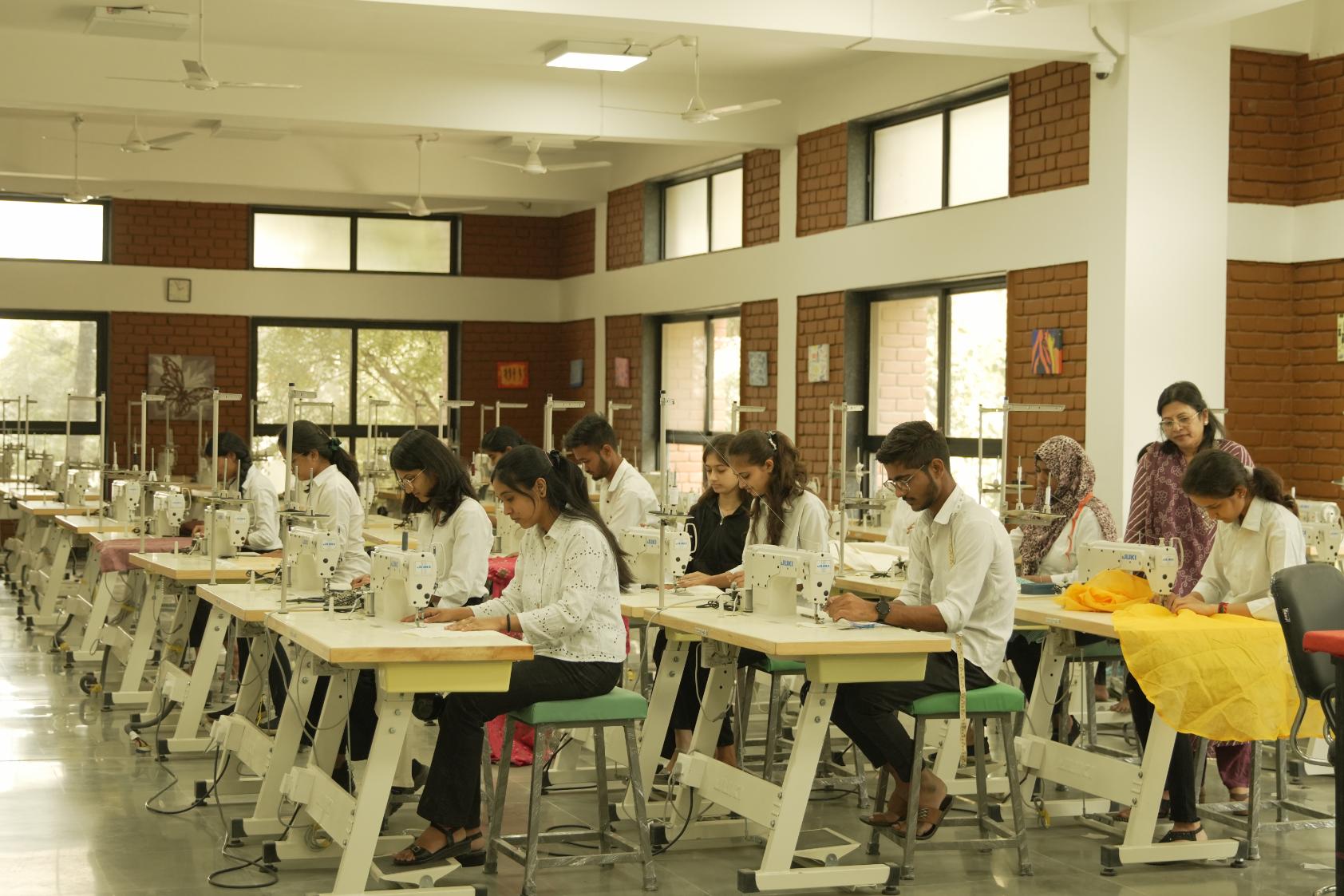
Garment Construction lab is equipped with commercial sewing machines (Juki), drafting tables and white boards
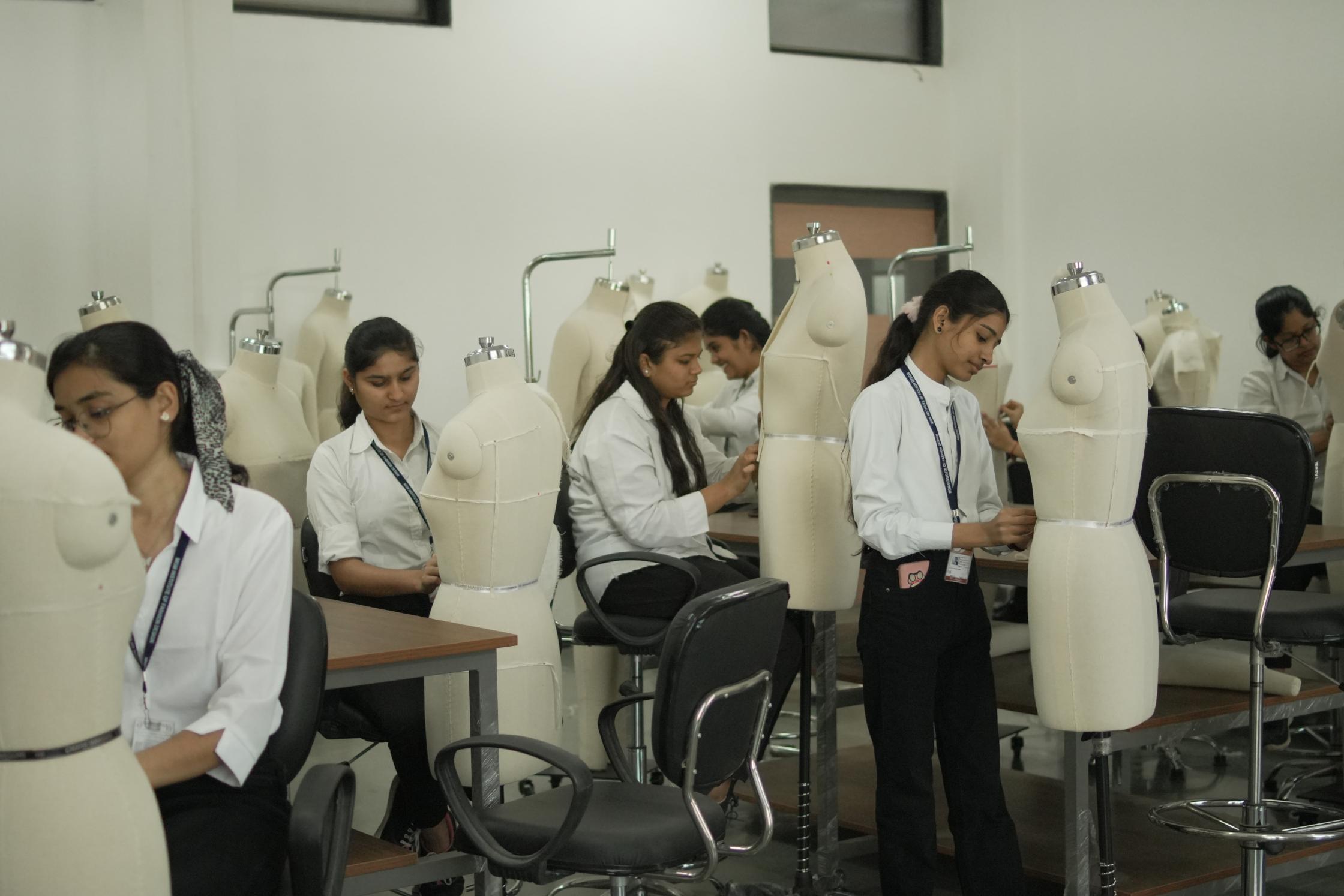
The Pattern making studio is equipped with drafting tables, dress forms and white boards.
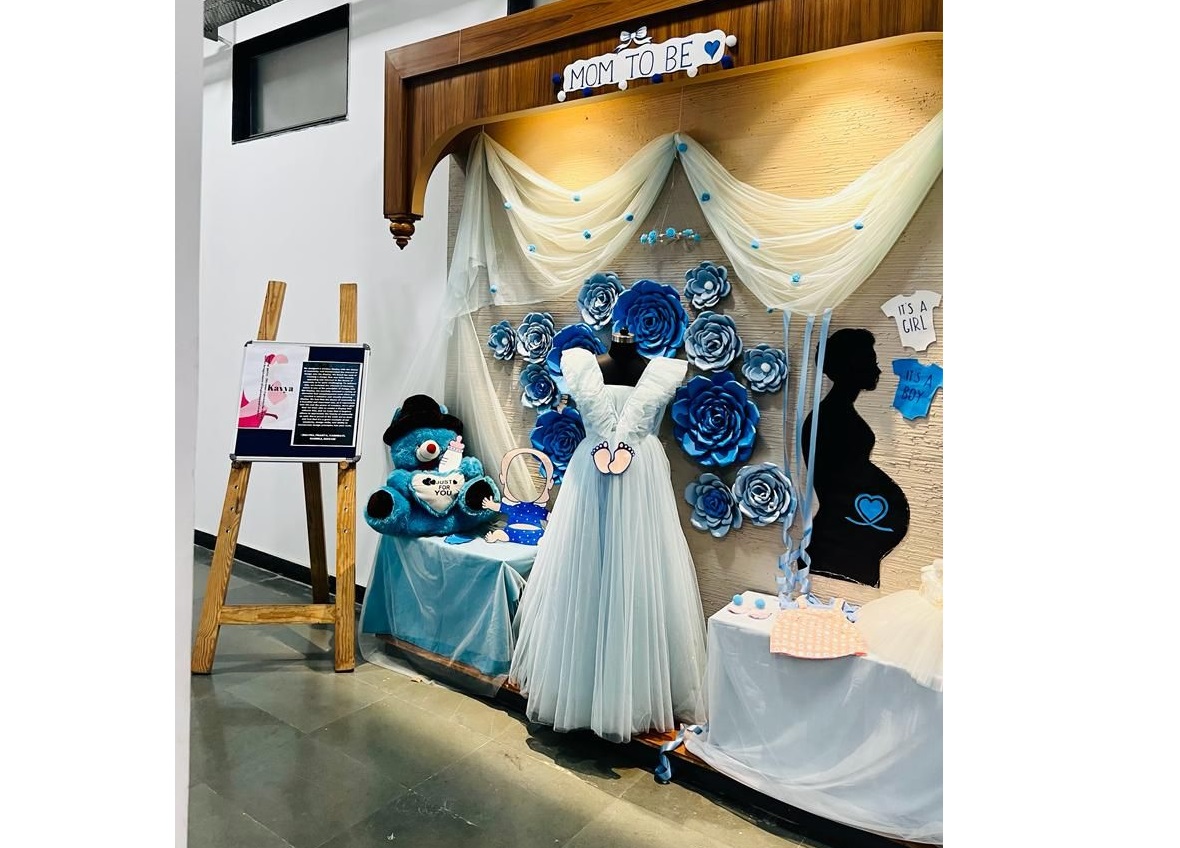
Exhibition Area to exhibit students, work.